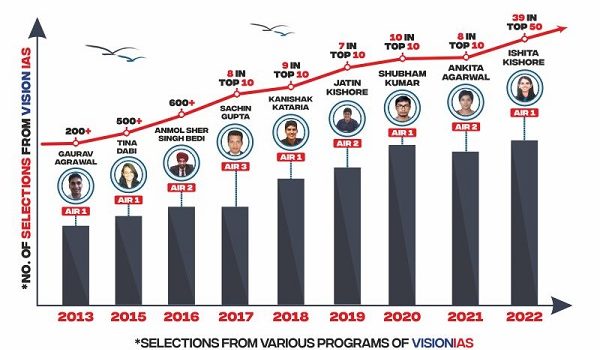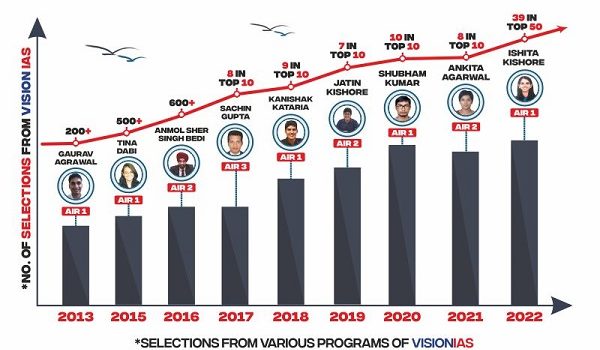In the quest for a sense of purpose, diverse career opportunities, leadership, respect, prestige, and working for a cause larger than oneself, many working professionals aspire to join civil services. While other jobs might seem more suitable, remunerative or convenient, the UPSC civil services allow one to pursue a career with a sense of purpose and turn this endeavor into reality.
The UPSC CSE Consists of 3 stages. Firstly, the Preliminary stage of the Examination consists of two objective-type papers with multiple choice questions i.e., General Studies Paper I and General Studies Paper II (CSAT). Secondly, the Mains examination includes a written stage and Interview for the final selection of candidates for the various Services and posts. The written stage comprises nine papers including Essay, Ethics GS Papers I, II & III, Optional Papers I & II and Language papers. Lastly, the Interview stage of the examination assesses the personality suitability of the candidate for a career in public service.
Attaining success in these stages of examination not only grants direct entry into the Indian civil services but also empowers individuals to actively contribute to the implementation of government policies, fostering socio-economic transformations in Indian society. Simultaneously, it opens the door to a profession that promises a high quality of life and enjoys elevated social prestige. This dream to serve the country shall not be confined to thoughts and shall manifest into tangible reality.
Holistic Preparedness with Resources Optimization
To prepare thoroughly, a working professional shall have a well-planned, smart and researched strategy. For this, decoding the UPSC syllabus with the simultaneous allocation of resources for different subjects is the first and foremost step to start the civil services preparation.
A working professional should concentrate on maximizing performance through limited but excellent resources in order to ensure multiple revisions. In this regard, coverage of standard textbooks like NCERTs & reference books for different subjects, self-made notes, daily newspapers and monthly Current affairs magazines will suffice the requirements. Alongside, working professionals should focus on the Previous Year’s Questions (PYQs) analysis to understand the evolving trends in UPSC papers dynamics and recurring themes in different subjects.
Mastering the Symphony of Time
The journey of the UPSC civil services examination should start at least nine to ten months before the preliminary exam for the working professional. This enables laying a strong foundation for the Prelims and Mains stages of UPSC CSE. Simultaneously, choosing the right Optional subject is a crucial decision for a working professional. It is best to make this choice early, but be sure to do thorough research and seek guidance to make an informed decision.
Working professionals should aim to begin their day early in the morning so that they can allocate four to five hours daily for UPSC preparation. Further, they should study for a considerable number of hours during holidays and weekends. To utilize this time, it is pertinent to have fixed and specific targets such as one can choose to cover the bigger chapters of subjects like Polity, History and Geography rather than doing them in silos over many weeks.
Further, to make the most of work breaks, working professionals can stay abreast of current events by reading newspapers or listening to videos about current affairs, and solving small quizzes of MCQ.
Knowledge of current affairs is essential for success in the examination as it helps in informing about changing domestic and global situations, evolving national and international issues and connecting historical events with contemporary times. It forms the backbone of all stages of the examination – Prelims, Mains and Personality Test.
To make a strategic utilization of leaves for exam preparation, it is vital to strategize leaves close to the exam date so that the targeted focus can be given for the Prelims/Mains examination. To make the most use of time, divide leaves, for instance, two weeks before the Prelims and one month before the Mains.
Steer clear of unnecessary gatherings or after-work excursions with coworkers. Rather, spend time on concentrated study. Every hour saved can help in giving adequate time for preparation, and assessment. For this, create a dedicated study space free from distractions. Also, disable notifications on electronic devices to reduce interruptions.
Enduring Stress and Managing Work
Working professionals must learn to deal with stress while preparing for the UPSC examination. It might be difficult to manage a full-time work and intense study schedule, but stress can be reduced by using techniques:
- Dedicated Schedule: A well-structured study schedule can help not only in covering the syllabus but also is a key to reducing stress. Allocating specific time slots for various subjects creates a sense of well-structured and organized preparation which in turn reduces the anxiety associated with last-minute cramming.
- Work-Life Balance: It’s critical to keep a positive work-life balance. Set aside time for restricted socializing, adequate exercising, and proper resting. Adequate sleep, pursuing hobbies, physical activity, and spending time with loved ones are all effective ways to decompress.
- Stress-reduction activities such as yoga, deep breathing exercises, mindfulness, and meditation methods assist in maintaining composure and concentration during exam preparation.
Smart Revision through Test series, Post-test Analysis & Expert Feedback
Smart revision is pivotal to develop good command over important subject and key areas therein. It allows memorization and reinforcement of the key learning in accordance with exam requirements. It is advisable to revise on daily, weekly and monthly basis which facilitates long term retention of the
Practicing mock tests is equally important to excel in this examination. Here, the prelims test series provides an excellent opportunity for students to assess their preparation level and simulate the civil services prelims examination conducted by UPSC. Through post-test analysis, one can identify learning gaps and areas that need focused attention and help them to adopt smart revision techniques, validate score maximization strategies, and enhance their psychological readiness.
Similarly, for the UPSC mains examination, mock test papers matching UPSC standards are sine-qua-non for the development of effective answer-writing skills. They not only familiarize students with the demands and pattern of the examination but also provide crucial insights into the nuances of effective answer writing. When combined with comprehensive, insightful and expert feedback, students can develop the requisite skills and proficiency to convey their ideas and knowledge to the examiner in an efficient manner while maintaining relevance, preciseness and impact in their answers.
Integrated preparation of both prelims and mains test series, post-test analysis, and seeking constructive feedback are indispensable strategies for aspiring Civil Servants.
Further, through self-awareness, regular guidance cum elocution sessions help to excel in the final interview stage of this exam.
The Value of Personalized Guidance: Performance Enhancement
Personalized mentorship is essential for course correction, performance enhancement, and encouragement. A mentor can provide precise strategies, identify strengths and weaknesses, and assist in specific inputs that help overcome the limitations of the working professional. This personalized approach boosts confidence and helps them reach maximized performance.
A strong continuous connection with a mentor will help to address strategy-related challenges, help set realistic goals and keep the working professionals motivated during the downs of this preparation.
Though it seems to be challenging to juggle UPSC Preparation with routine work, one can succeed with dedication and the correct approach. Remember that work experience is not a drawback and might work to the advantage in the UPSC journey. Remain committed and laser-focused on the goal of passing this important exam by maintaining an optimistic outlook. Visualize your success and remind yourself of the reasons you embarked on this journey. Stay confident in your ability to handle both your job and UPSC preparation.
Arise awake and stop not till the goal is reached – Swami Vivekananda
Visit us at: https://bit.ly/3Si8TqC
Or Call us at: 8468022022, 9019066066



